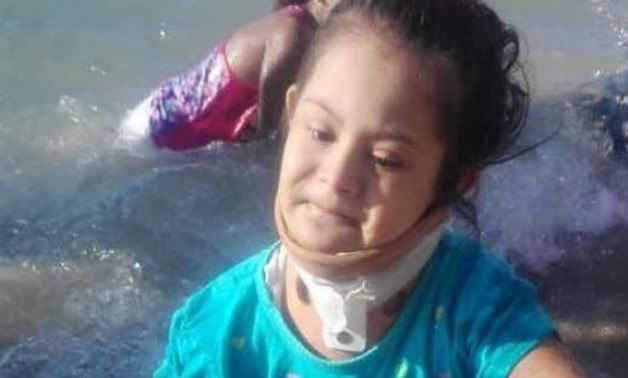
Marwa Rabie - press photo
CAIRO – 10 August 2018: President Abdel Fatah al-Sisi Thursday ordered that underprivileged disabled child Marwa undergo a delicate surgery in her neck at the government’s expense after her aunt sent a letter to Youm7 newspaper asking for treatment of her niece.
Seven-year-old Marwa Rabie, a resident of el-Bagour town in Menufia governorate, was immediately admitted at a specialized hospital in Cairo, where she will undergo a neck surgery.
Marwa’s mother, Hala Ibrahim, expressed her delight and gratitude for President Sisi's rapid response to offer her daughter suitable treatment at the expense of the state.
“Thanks President Sisi! The one who responds to the treatment of mentally handicapped child will be sure rewarded by God," Ibrahim said.
The Program of Treatment at the Expense of State (PTES) is the main alternative available for underprivileged Egyptian patients who cannot afford to pay for adequate medical treatment. Although the system is openly criticized, the perceptions differ according to the roles and experiences of the different stakeholders.
Officials maintain that strict rules and regulations were lately implemented to insure the effectiveness and efficiency of the system. Patients acknowledge that the PTES is providing them with the medical services that they cannot afford, however, they point out to some deficiencies in the system such as the time it takes to get the approval and to renew it and the insufficient funds allocated per patient in some cases.
During the 6th National Youth Conference (NYC) held at Cairo University late July, Minister of Finance Mohamed Moeit said that the healthcare system in Egypt has been fragmented. For instance, patients whose treatment required very high costs had to go through a long process to be granted treatment at the expense of the state, highlighting the importance of having a unified universal healthcare system. Meanwhile, Minister of Health and Population Hala Zayed delivered a presentation on efforts deployed to provide immediate treatments for patients on waiting lists to undergo critical surgeries.
The World Bank decided early July to invest $530 million in a project to improve Egyptian health care. The money will go toward a five-year project being implemented by the Ministry of Health and Population and will be an integral component of Egypt’s ambitious health reforms, the World Bank said.
Comments
Leave a Comment